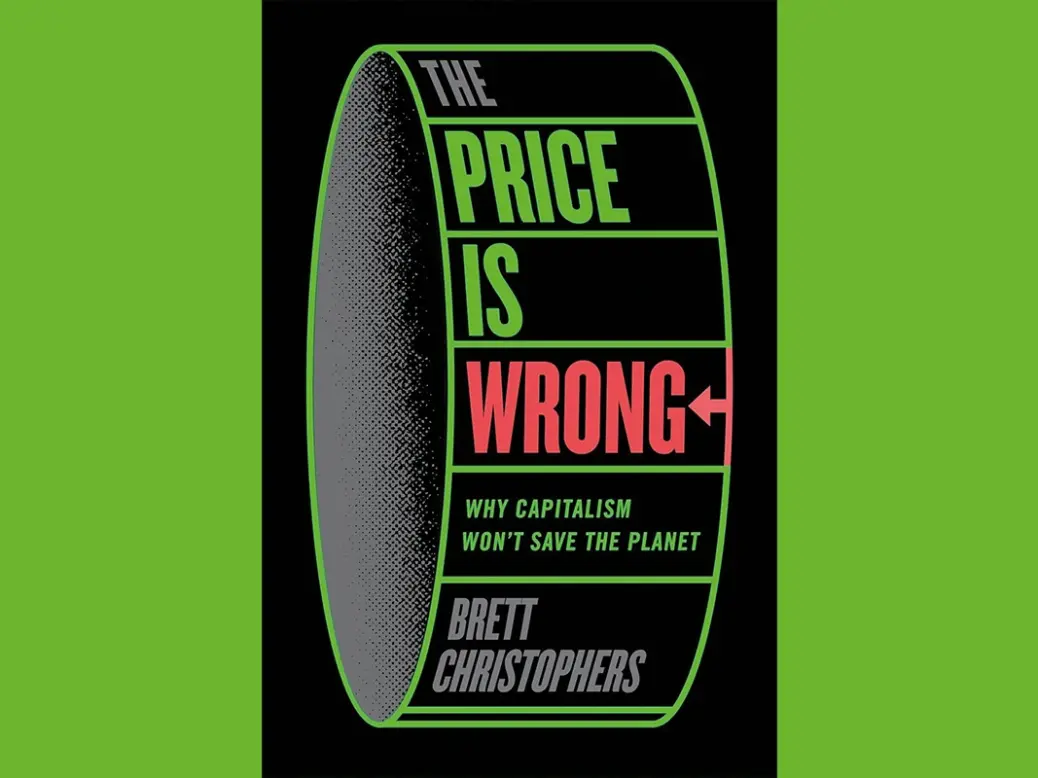
After reading a few pages of The Price Is Wrong, you might do well to forget your jokes about the discipline of geography – those tedious ones about drawing maps of volcanoes – as one of the most persuasive and rigorously analytical thinkers of our present age is a professor at the department of human geography at Uppsala University in Sweden.
Brett Christophers is not a Swede. Born in Croydon in 1971, he studied at Oxford before completing a master’s degree in Canada, where his thesis was titled Positioning the Missionary: John Booth Good and the Confluence of Cultures in Nineteenth-Century British Columbia. His peripatetic career continued at PriceWaterhouseCoopers and Mercer, where he worked as a consultant until he was on the brink of being made a partner.
[See also: Why the Great Wealth Transfer will be a dangerous time for global capitalism]
Returning to academia, he started a remarkable trilogy of books in 2018 when he published The New Enclosure: The Appropriation of Public Land in Neoliberal Britain, which, despite its faddish title, made the astonishing claim that the most significant of the privatisations initiated by Margaret Thatcher was the transfer of land from state to private ownership. In 2020 he wrote Rentier Capitalism: Who Owns the Economy and Who Pays for It?, a similarly forensic critique of the British economy that made the compelling thesis that the control of vital assets is in the hands of a tiny elite. That argument was developed in 2023’s Our Lives in Their Portfolios: Why Asset Managers Own the World.
Within that book, which was his most well-received effort yet – it even scored a decent notice in the Financial Times – there is a memorable chapter in which Christophers outlines how almost the entire infrastructure of the county of Kent is owned by asset management companies. As portraits of the raw reach of globalisation go, it’s pretty neat.
If the price is right
Now Christophers is back with another work of whistling ambition. In The Price Is Wrong, the academic expands his scope into the widest possible lens, as he ponders the futurity of the planet and the human race. Well, it’s not quite that bombastic, but it’s not far off.
Focusing solely on the relationship between climate change and electricity, Christophers argues that our understanding of capitalism and climate is ‘back to front’, and that the main barrier to effective decarbonisation is not price but profit. This is new territory. Activists, lobbyists and policymakers have long focused on the merits of pricing, of how the right incentives for suppliers and consumers will help drive us towards the halcyon promise of Net Zero. But after decades of technological advances, the price of renewable energy has now fallen and it is now cheaper – in some cases – than fossil fuels.
[See also: Wealth advisers predict global private equity bounceback driven by UHNW investors]
As has been well documented, hydroelectric power is regarded as unreliable. The disadvantages of nuclear power will lie festering in the Ukrainian soil for 20,000 more years after the Chernobyl disaster. The future of renewable energy is with the wind and the sun, as the costs have plummeted in recent years. Between 2010 and 2020, the average lifetime (‘levelised’) cost per megawatt-hour of electricity generated fell by 56 per cent for onshore wind, 62 per cent for offshore wind and 87 per cent for solar photovoltaic energy.
If it’s all got so much cheaper, why aren’t renewables taking over? The broad consensus is that the key to combating climate change is to produce green electricity and electrify everything possible. In 1985, fossil-fuel-fired plants generated 64 per cent of global electricity; in 2022, they generated 61 per cent.
Now, there are complicating factors, not least the booming global population, which is sending the demand for cheap energy spiralling higher. Driven by technological developments such as fracking, fossil fuel companies are drenched in record profits and continue to expand. Just last October, ExxonMobil and Chevron bought other companies in mega-deals to considerably increase their production capacities to 5.1 million barrels of oil a day (mb/d) and 4.4 mb/d respectively. Most crucially, China and India account for around four-fifths of global annual growth in electricity consumption, and as Christophers asserts, this is a story that is largely about these two countries. Electricity generation remains ‘extremely dirty’ in both China and India, despite significant gains on renewables in the past decade.
Solar and wind projects are capital-intensive projects to begin with, but then there are little costs to operate them. The payback periods for wind and solar are parlous: anything less than a decade is considered a success. The internal rates of return (IRR) of hydrocarbon projects are ‘around 15 to 20 per cent, or higher’, Christophers writes, whereas ‘typical IRRs on renewables today are around 5 to 6 per cent’.
Moreover, governments have increasingly introduced systems like favourable long-term tariffs and effective subsidies to encourage renewable energy development. But as the fall of production costs has hastened, governments have reduced subsidies; by 2017, zero-subsidy bids were recorded for the first time in European offshore wind auctions. At the same time, this has cut profits and damaged investor returns. In May 2019, data released by the International Energy Agency showed renewable energy deployments stagnating for the first time since the turn of the century. The agency’s executive director, Fatih Birol, described the development as ‘deeply worrying’. And that is the crux of the book’s analysis: capital is too concerned with profit to respond to the climate crisis with the necessary alacrity.
The Price is Wrong is a work of utmost importance
While he is not an especially elegant prose stylist, Christophers writes with lucid energy, using language as a tool to drive the logic of his arguments. His synthesis of a staggeringly wide array of sources is hugely impressive, reading and interpreting government reports, company balance sheets and scientific papers. While some readers may be triggered by the odd clanging Marx-inspired phrase, this is a work of profound scholarship and the utmost importance.
The recent COP28 summit – held in Dubai of all places – was regarded as a ridiculous failure even by its staunchest advocates. As 2023 was the hottest year on record, the rump of climate change deniers in the West grows ever smaller, as the stakes grow ever higher.
The Price Is Wrong: Why Capitalism Won’t Save the Planet by Brett Christophers, Verso Books, £22, from 27 February. Charlie Baker is editor of The Fence
This feature first appeared in Spear’s Magazine Issue 90. Click here to subscribe







